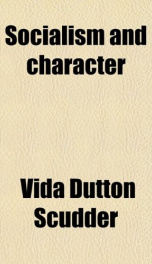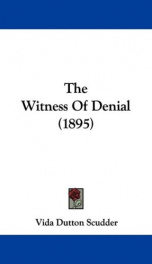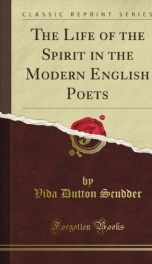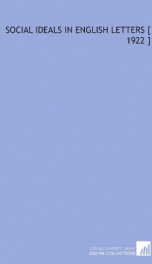socialism and character

Purchase of this book includes free trial access to www.million-books.com where you can read more than a million books for free. This is an OCR edition with typos. Excerpt from book: CHAPTER II OUR WOULD-BE GUIDES As we halted in these straits, it was natural that we should peer back into the century we were leaving, and interrogate more sharply than ever before those guides of our youth who had sent us on our way. Since the Industrial Revolution, all thinkers had faced practically the same situation as our own, and they spoke to us as contemporaries. The goodly fellowship on quest for justice in- what Carlyle called " the wilderness of a wide world in an atheistic century " included members from every European country and from the United States. If we had listened most readily to those of English speech, to Emerson, Thoreau, Whitman, to Carlyle, Ruskin, George Eliot, Matthew Arnold, Edward Carpenter, none the less had we lent an ear to compelling accents from across the Channel. The melancholy music of Leopardi, Heine, and their generation was still faintly audible; the earnest tones of Mazzini, the sonorous harmonies of Victor Hugo, were to be caught with no strain to the listener. Yet we were perhaps more insistently held by the mordant words of Ibsen, Hauptmann, Sudermann, while we found it hard to say whether that dubious measure of Nietzsche which frightened and arrested us rose fromdaemonic depths or floated down from the heights attained by the victorious Superman. Overmastering all other tones, however, something of " the large utterance of the early gods " reached us from Russia. The great novels Dostoiefsky's pained and poignant studies of the world's anguish, Tourgenieff's sensitive delineation of the stupor of the oppressed and the self- consuming fever of the would-be redeemers had prepared us for a greater message; for the accusing, revealing voice of the one man who had traveled beyond our modern complex bewilderments into a regio...
Info about the book
Author:
Series:
Unknown
ISBN:
0062003747
Rating:
5/5 (7)Your rating:
0/5
Languge:
English
Users who have this book
Users who want this book
What readers are saying
What do you think? Write your own comment on this book!
write a commentif you like socialism and character try:
Do you want to read a book that interests you? It’s EASY!
Create an account and send a request for reading to other users on the Webpage of the book!





